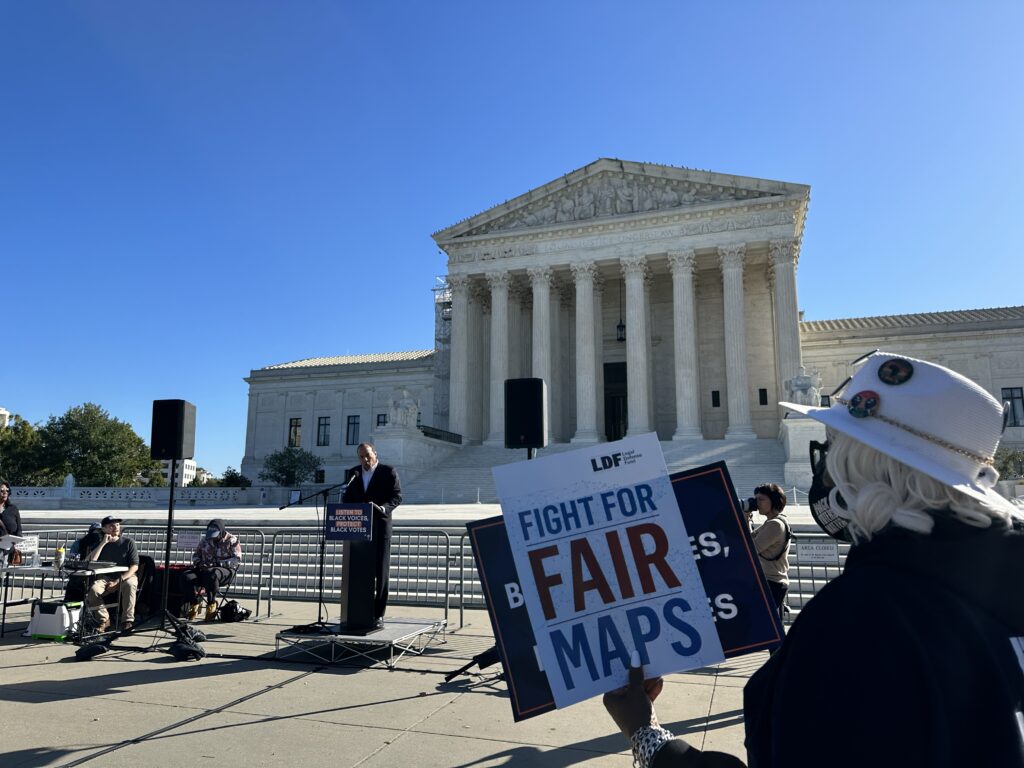Nearly Three-Year Federal Legal Battle Over South Carolina’s Congressional Map Comes to an End, Unfair Districts Remain in Place

Last Friday, the South Carolina State Conference of the NAACP and a Black voter agreed to voluntarily dismiss their remaining claim in a federal lawsuit that had originally challenged the state’s congressional map as being racially gerrymandered and intentionally discriminatory.
The move puts an end to a nearly three-year legal battle over South Carolina’s congressional districts. The case made its way to the nation’s highest court last term and culminated in a decision that left the state’s Charleston-area Black voters with what experts and advocates alike consider to be an unfair and unrepresentative map.
In May, the U.S. Supreme Court’s conservative majority reversed a three-judge panel’s prior ruling in the case, which found the state’s 1st Congressional District to be an unconstitutional racial gerrymander created by moving over 30,000 Black voters out of Charleston County.
Despite the panel’s post-trial findings that the state constructed a “stark” racial gerrymander, Justice Samuel Alito — who authored the Court’s opinion in Alexander v. South Carolina State Conference of the NAACP — held that the lower court should’ve given the Legislature a “presumption of good faith” when weighing legal claims against the state’s map drawing process.
The majority opinion also outlined stricter standards for plaintiffs to prevail in future racial gerrymandering cases and effectively gave state lawmakers carte blanche to utilize race as a proxy for achieving partisan ends, as Justice Elena Kagan underscored in a scathing dissent. Voting rights attorneys and organizations that brought the case regarded the decision as a major blow to minority voters who already have limited legal recourse in fighting unfair maps.
While a majority of the justices in Alexander reversed the panel’s decision on the plaintiffs’ racial gerrymandering claim, they simultaneously remanded back to the panel a separate constitutional claim alleging that the congressional map intentionally discriminated against Black voters.
According to Alito’s majority opinion, the panel applied an incorrect legal standard when assessing the plaintiffs’ claim that the state sought to intentionally dilute minority voting power when drawing the congressional map.
In a June 28 order responding to the Supreme Court’s ruling, the panel asked the parties for further briefing on the matter by the end of July, but the plaintiffs and defendants instead filed a joint notice on Friday agreeing to voluntarily dismiss the outstanding claim and forgo further proceedings.
On Aug. 1, the panel approved the voluntary dismissal, thereby ending the litigation.
Read the joint stipulation here.
Learn more about the case here.
This story was updated on Aug. 2, 2024, at 10:27 a.m. EDT to reflect the fact that the three-judge panel officially approved the joint motion to voluntary dismiss the case.